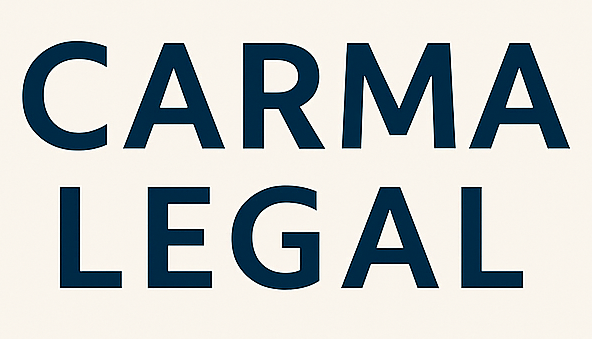If you suffered an injury on someone else’s property due to unsafe conditions, a fall injury compensation attorney can help you pursue fair recovery. Premises liability law holds property owners responsible when negligence leads to harm, and a qualified premises liability lawyer can guide you through each step. Slip-and-fall accidents account for more than 8 million emergency room visits annually, and for older adults they are the leading cause of unintentional deaths in the U.S. [1]. Whether you slipped on a wet floor or tripped over broken pavement, you deserve compensation for medical bills, lost wages and pain and suffering. This guide explains how liability is established, what evidence you need and how an experienced attorney can support your claim while you focus on healing.
Understand premises liability
Under premises liability, property owners and occupiers owe you a duty of care. They must maintain safe conditions and warn visitors of known hazards. If they breach this duty and you get hurt, you can pursue compensation for your losses.
Duty of property owners
The duty of care varies by visitor status
- Invitees, such as customers or clients, are owed the highest level of care
- Licensees, like social guests, deserve warning of hidden dangers
- Trespassers require minimal warnings of known hazards
If you were on public property or in a business setting, you likely qualify as an invitee. That means the owner must regularly inspect and address dangerous conditions.
How negligence is determined
To build a successful claim, you need to prove all of the following:
- The owner knew or should have known about the hazard
- They failed to fix it or to provide a warning within a reasonable time
- You suffered an injury because of that condition
- You incurred damages as a result
As a result of meeting these elements, you can hold the negligent party responsible for your medical expenses, lost wages and other losses.
Identify common fall scenarios
Premises liability cases arise in a variety of settings, including retail, hospitality, multiunit housing and outdoor spaces. Common scenarios include:
- Spills, leaks and clutter in grocery stores, supermarkets and other retail outlets
- Grease, moisture and debris in restaurant kitchens and dining areas
- Uneven flooring, poorly maintained stairwells and broken handrails in apartment buildings and hotels
- Snow, ice patches and cracked sidewalks in parking lots or walkways
Each case benefits from an attorney with specific experience. You may need a grocery store slip and fall lawyer for supermarket hazards, a restaurant slip and fall attorney for dining area injuries, an apartment slip and fall lawyer for landlord-related claims, or a slip and fall on ice lawyer for winter conditions.
Document injuries and losses
Prompt medical attention not only protects your health but also strengthens your claim. Some injuries, such as concussions or soft tissue damage, may not appear immediately [2]. Follow your provider’s recommendations and keep detailed records:
- Date, time and location of each medical visit
- Copies of bills, prescriptions and test results
- Out-of-pocket expenses, including travel and medical equipment
- Documentation of missed work, reduced hours or diminished earning capacity
These records form the backbone of your damages claim by demonstrating the full impact of your injury.
Gather crucial supporting evidence
Strong evidence proves both the hazard and its link to your injury. Key items include:
| Evidence type | Purpose |
|---|---|
| Photos and videos | Show the hazard and surrounding conditions |
| Witness statements | Confirm your account of events |
| Incident reports | Provide an official record of the accident |
| Maintenance and inspection logs | Demonstrate owner’s knowledge of risks |
| Medical records | Document injuries and treatment chronology |
Capture the scene as soon as possible, collect names and contact details of witnesses, and obtain any reports filed with property management or security. Organizing this evidence early helps your attorney address insurer challenges.
Work with a specialized attorney
An experienced lawyer familiar with premises liability can guide you through legal complexities, negotiate with insurers and represent you in court if necessary. Most fall injury attorneys work on a contingency fee basis, which aligns their incentives with yours.
Contingency fee agreement
- You pay no fees unless you recover compensation
- Fee percentages may vary by case stage, such as pre-suit or post-trial [3]
- Case expenses—court fees, expert witnesses and investigation costs—may be deducted before or after the contingency percentage
Choosing the right attorney
When evaluating counsel, look for:
- Proven success in slip-and-fall and premises liability claims
- Clear communication and a willingness to explain each phase
- Adequate firm resources for complex litigation
- Positive client reviews and testimonials
By partnering with counsel who understands premises liability and insurer tactics, you improve your chances of securing fair compensation.
Navigate the claims process
Your attorney will prepare a demand letter that outlines your injuries, evidence and the compensation you seek. Insurers often respond with a low initial offer, beginning a negotiation phase:
- Demand letter – sets the stage for settlement talks
- Insurer response – may include a counteroffer or requests for more information
- Negotiation – rounds of offers and counteroffers
- Mediation or arbitration – optional alternatives to trial
- Lawsuit filing – if settlement stalls, your lawyer initiates formal litigation
Cases with clear liability and moderate injuries often settle in 9 to 12 months, while more complex matters can take over a year to resolve [4]. Your attorney will keep you informed about likely timelines and outcomes.
Maximize your compensation
Your award can include:
| Damage category | Description | Examples |
|---|---|---|
| Economic damages | Tangible financial losses | Hospital bills, lost wages |
| Non-economic damages | Intangible harms | Pain and suffering, emotional distress |
| Punitive damages | Punishment for gross negligence | Enhanced awards in egregious cases |
Your attorney will calculate each category based on your circumstances and use wage statements, expert testimony and cost estimates to support your claim.
Take next steps toward recovery
State laws impose deadlines—known as statutes of limitations—for filing claims. For example, you generally have three years to file a slip-and-fall suit in North Carolina [5]. To protect your rights:
- Contact a qualified slip and fall settlement lawyer for a free consultation
- Continue following medical advice and document all follow-up treatments
- Promptly respond to your attorney’s information requests
- Focus on your healing while your lawyer handles negotiations and litigation
By taking these steps, you ensure that your case moves forward smoothly and that you receive the support necessary for a lasting recovery.








